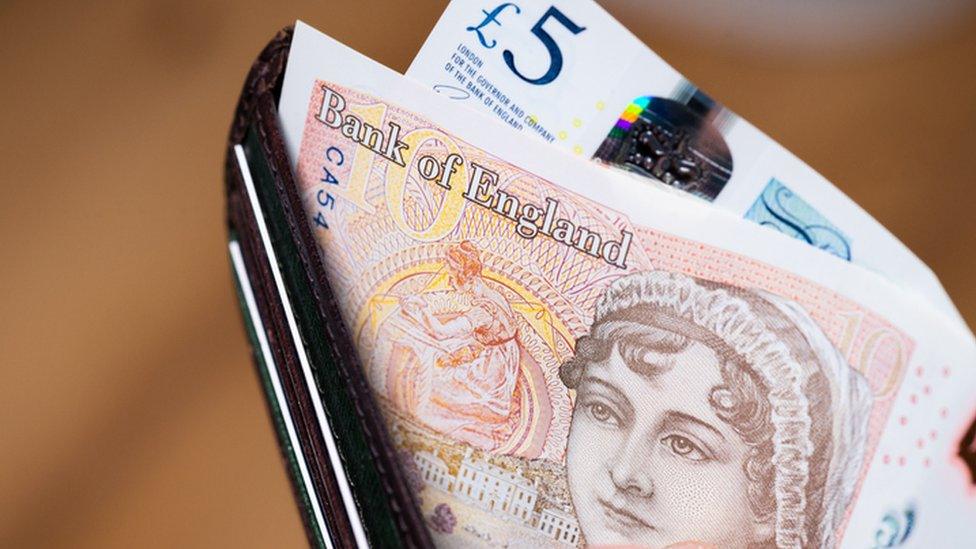Fraudsters 'caught me in a spider's web'
- Published

David Bale says everyone needs to be aware of fraud tactics
When David Bale received a call from his bank to tell him his account had been hacked, he was naturally concerned.
The call had come from what looked like a genuine TSB number, but it was a spoof and the caller was a fraudster.
Impersonation scams such as this nearly doubled to 15,000 cases in the first half of the year, according to new figures from banking trade body UK Finance.
The criminal persuaded Mr Bale that funds needed to be transferred to a "safe account", so he allowed payments totalling nearly £6,000 to be made.
"I felt humiliated and very foolish, but they were very convincing. Everyone is gullible when you are caught on the hop," the 76-year-old said.
"I felt myself in a spider's web, only slowly did I become aware there was something odd."
Refund question
When the con-artist demanded more information Mr Bale become more suspicious, ending the call and contacting the bank.
The money was refunded under a TSB pledge to cover all fraud losses suffered by innocent victims.
Thousands of other victims of fraud have not been so lucky.
Most of the biggest players in the UK banking sector are signed up to an agreement to ensure victims of so-called authorised push payment fraud are refunded when they or their bank are not to blame.
However, with £126m of losses considered under the new code in the first half of the year, only £48m (38%) was refunded, new data from UK Finance shows.
Banks consider cases individually, and point out that some people are not refunded as they have ignored scam warnings.
However, concerns have been raised over the inconsistency of the code between different banks.
Regulators have warned that the "right outcomes" had not always resulted in these cases, and UK Finance now wants the code to become law.
Overall, £208m was lost to authorised push payment fraud in the first half of the year, when victims were persuaded to make transfers to people they believe are genuine traders or service providers.
A total of £374m was lost to criminals through other, unauthorised fraud, such as when banking security systems are circumvented.
Covid warning
UK Finance has warned that criminals are using the coronavirus crisis to trick people - often as they use online or mobile banking for the first time - into giving their personal and financial details.
As a result, it expects fraud levels to rise in the latter half of the year and early next year.
"Criminals have ruthlessly adapted to this pandemic with scams exploiting the rise in people working from home and spending time online," said Katy Worobec, managing director of economic crime at UK Finance.
"These range from investment scams promoted on social media and search engines to the use of phishing emails and fake websites to harvest people's data."

How to prevent fraud
The Take Five to Stop Fraud campaign is urging people to:
Stop: Taking a moment to stop and think before parting with your money or information could keep you safe
Challenge: Could it be fake? It is OK to reject, refuse or ignore any requests. Only criminals will try to rush or panic you
Protect: Contact your bank immediately if you think you've fallen for a scam and report it to Action Fraud

- Published9 September 2020

- Published30 April 2020

- Published29 July 2020

- Published15 September 2020
